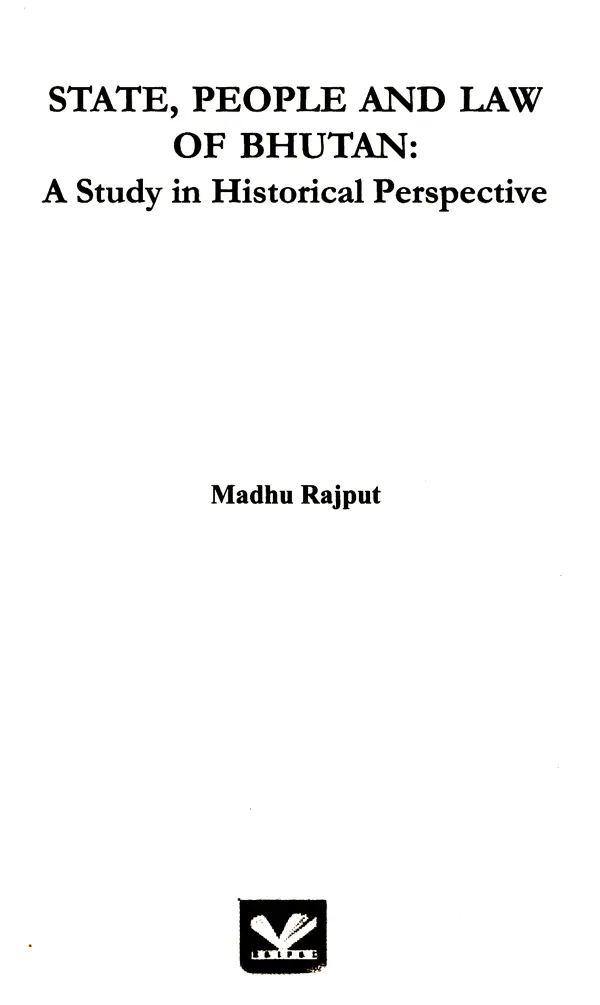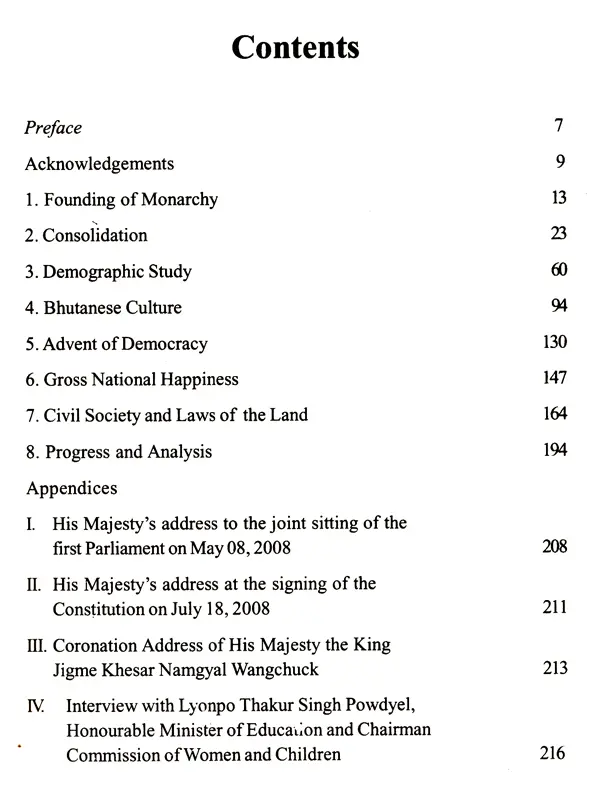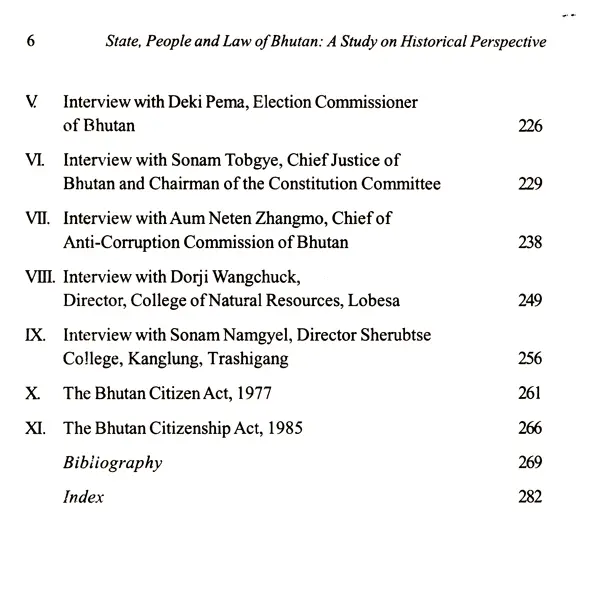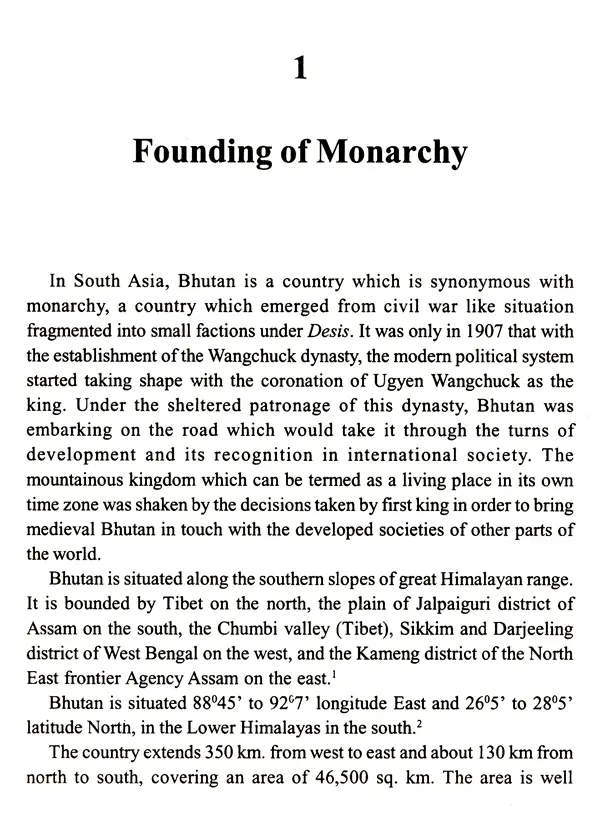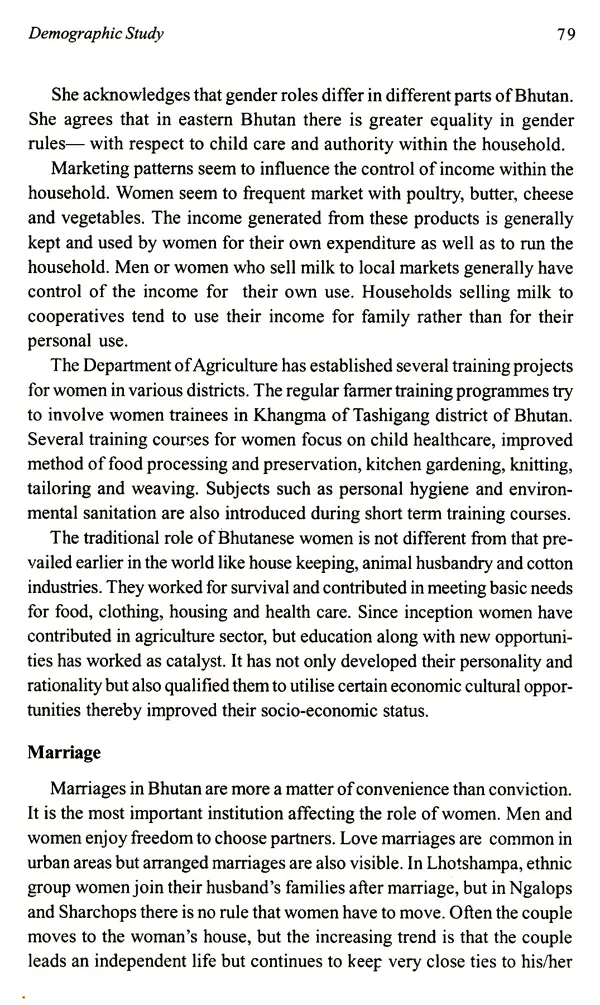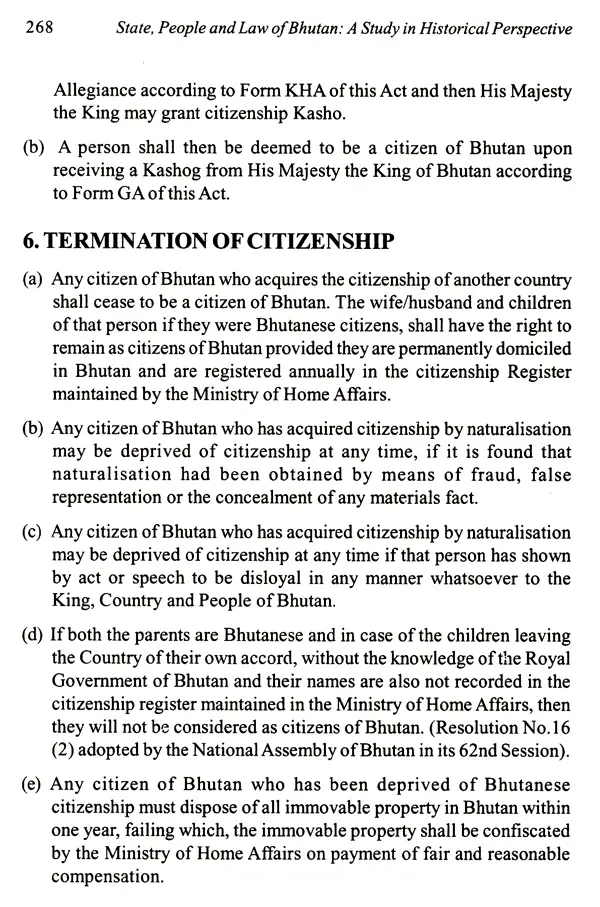
State, People and Law of Bhutan: A Study in Historical Perspective
Book Specification
| Item Code: | UAM774 |
| Author: | Madhu Rajput |
| Publisher: | Kalpaz Publications |
| Language: | English |
| Edition: | 2015 |
| ISBN: | 9789351280767 |
| Pages: | 292 |
| Cover: | HARDCOVER |
| Other Details | 8.90 X 5.90 inch |
| Weight | 460 gm |
Book Description
To understand this multi-lingual and multi-ethnic nation, it was imperative to visit personally to get an insight into its uniqueness. I had an opportunity to visit 11 out of 20 dzongkhags (districts) of Bhutan during the time of transition-politically and economically. The State has grace fully absorbed the process of transformation and has carved a place in the community of nations for itself.
It has carefully earned the image of a nation which cares for its people. In the development projects, emphasis has been on disseminating the fruits of modernization to each and every corner of the country. It is evident in the field of infrastructure as well as education. Roads are being built, remote places are being connected to mainstream, Basic Health Care Units have been established in most of the dzongkhags, electricity and telephone facilities are spreading far and wide. A thoughtful effort is being put towards changing the attitude of people, to convince them to embrace a progressive life-style. The measure of success can be gauged by the way education has caught the attention of people, even in the villages where only a few years back government officials had to convince the parents to get their children enrolled in schools. Now, with the government sponsoring education till 10th standard, students have to compete for enrolment. In higher education, the enrolments are now merit based.
Bhutan can boast of vividness in culture and language which has seen off late the outside creeping influences. Till now, the efforts to keep traditions and development in balance have been successful but with expo sure and opportunities what will happen in future is eagerly awaited. Will Bhutan retain ethnic charm in the era of sweeping cosmopolitanism is a big question?
In this book, are effort has been made to trace the transition of the State, People and Laws of Bhutan since the coming of Wang chuck dynasty in 1907 till now. Its close ties with India have been the main focus. Bhutan has recently seen momentous changes in every sphere and is striding into future with confident but cautious approach. It would be interesting to observe this Buddhist nation's tryst with modernization.
**Contents and Sample Pages**
